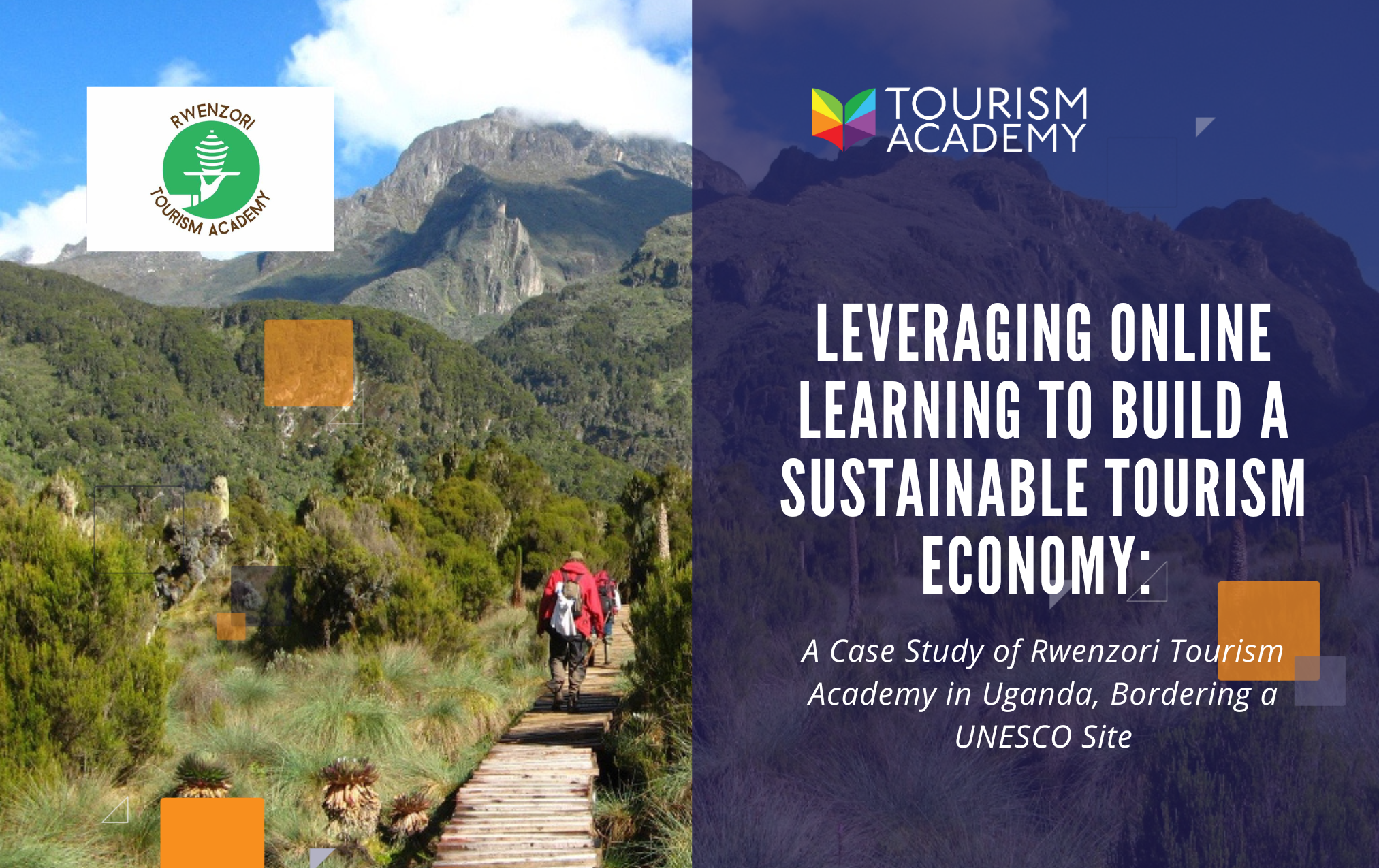
Leveraging Online Learning to Build a Sustainable Tourism Economy: A Case Study of Rwenzori Tourism Academy in Uganda, Bordering a UNESCO Site
Introduction:
The tourism industry in Uganda, particularly in the region bordering the Rwenzori Mountains, holds great potential for economic growth and development. To harness this potential while promoting sustainability, the Rwenzori Tourism Academy (RTA), working alongside The Tourism Academy, has adopted online learning as a key strategy to educate and empower individuals interested in the tourism sector. This case study explores how the RTA has leveraged online learning to build a sustainable tourism economy while maintaining the integrity of the UNESCO World Heritage Site.
Background:
The Rwenzori Mountains, a UNESCO World Heritage Site located in western Uganda, offer breathtaking natural beauty, diverse wildlife, and unique cultural heritage. Recognizing the need to preserve this fragile ecosystem while capitalizing on its tourism potential, the Rwenzori Tourism Academy was established as a specialized institution to train and develop skilled professionals in the tourism industry.
Objectives:
The primary objectives of the RTA are:
-
To provide quality education and training programs that align with sustainable tourism practices.
-
To promote entrepreneurship and innovation within the tourism sector.
-
To leverage online learning platforms to reach a wider audience and increase access to education.
-
To contribute to the socio-economic development of the local communities.
Online Learning Initiatives:
Curriculum Development:
The RTA has developed a comprehensive online curriculum that covers various aspects of sustainable tourism, including environmental conservation, community engagement, cultural heritage preservation, and responsible tourism practices. The curriculum is designed to equip learners with the necessary knowledge and skills to contribute to a sustainable tourism economy.
Virtual Classrooms:
The RTA utilizes virtual learning platforms and video conferencing tools to facilitate interactive online classes. Learners can access lectures, participate in discussions, and collaborate with instructors and fellow students. This approach enables the academy to reach individuals who may not have the means or resources to attend traditional, on-site classes.
E-Learning Resources:
The RTA has developed a repository of digital learning resources, including e-books, video tutorials, and online assessments. These resources are easily accessible to students, allowing them to study at their own pace and reinforce their understanding of key concepts.
Webinars and Guest Lectures:
The RTA organizes webinars and invites industry experts and professionals to deliver guest lectures, providing learners with insights into current trends, best practices, and real-world challenges within the tourism sector. These interactive sessions encourage critical thinking and foster networking opportunities.
Collaboration with UNESCO and Local Communities:
The RTA actively collaborates with UNESCO and local communities to ensure the protection and sustainable development of the Rwenzori Mountains and its surrounding areas. The academy facilitates workshops and training programs in collaboration with UNESCO, focusing on topics such as heritage preservation, ecotourism, and sustainable development.
Outcomes and Impact:
By leveraging online learning, the RTA has achieved several notable outcomes:
-
Increased access: Online learning has enabled the RTA to reach a wider audience, including individuals from remote areas who previously faced geographical barriers to education.
-
Skill development: The academy has successfully equipped learners with the knowledge and skills required to contribute to sustainable tourism practices, thus fostering the growth of a skilled workforce within the industry.
-
Entrepreneurship and employment opportunities: The RTA's emphasis on entrepreneurship has empowered individuals to establish their own tourism-related businesses, promoting economic growth and creating employment opportunities.
-
Environmental conservation: Through its curriculum and initiatives, the academy has raised awareness about the importance of environmental conservation, leading to increased efforts to protect the UNESCO World Heritage Site.
-
Community engagement: The RTA's collaboration with local communities has fostered a sense of ownership and participation, ensuring that the benefits of tourism are shared equitably among community members.
Conclusion:
The case study of the Rwenzori Tourism Academy highlights the transformative potential of online learning in building a sustainable tourism economy. By leveraging digital platforms, the academy has been able to educate and empower individuals, promote responsible tourism practices, and contribute to the preservation of a UNESCO World Heritage Site. The success of the RTA serves as a model for other tourism academies and institutions worldwide, showcasing the importance of embracing technology for sustainable development.


Leave a comment